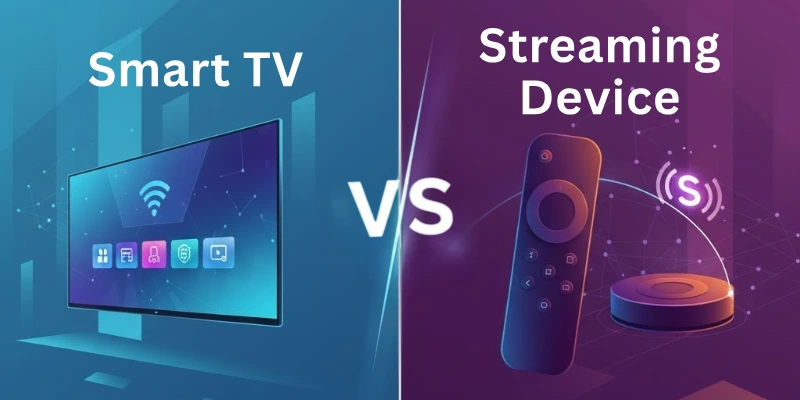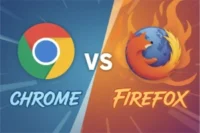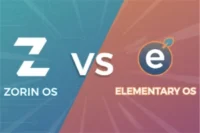Smart TV vs Streaming Device: Comparison of Features, Price & Speed
Published: 30 Oct 2025
Today we can watch movies and shows on our TV in many ways. Some people use a Smart TV, and some use a streaming device like Fire Stick or Roku. Both help us watch YouTube, Netflix, and other apps on the big screen. A Smart TV already has apps inside it, but a streaming device can make a normal TV smart.

Many people get confused about which one to buy. In this article, we will compare Smart TV vs Streaming Device in very simple words to help you choose the best one for you this year.
Differences between Smart TV and Streaming Device
Here is a list of key comparisons below:
- Setup and Ease of Use
- App Availability and Updates
- Performance and Speed
- Price and Value
- Picture and Sound Quality
- Portability and Flexibility
- Internet and Connectivity
- Updates and Longevity
- Best Use and Target Users
Let’s break down all the key differences in detail and help you decide which is the best for you.
1. ⚙️ Setup and Ease of Use
Setting up both Smart TVs and streaming devices is simple, but the way they work is a bit different. Let’s look at how each one is used in daily life.
🖥️ Smart TV – Everything Built-In
Smart TVs are made to be ready from the start. You just plug them in and connect to Wi-Fi.
- Has built-in apps like YouTube and Netflix.
- You can start watching right after setup.
- No need to add any extra device or wire.
- Comes with a remote that is easy to use.
- Great for people who want a simple setup.
- All features are already inside the TV.
- Perfect for home or family use.
📦 Streaming Device – Plug and Play Option
A streaming device is small but powerful. It turns any normal TV into a smart one.
- Just plug it into your TV’s HDMI port.
- Connect it to Wi-Fi and log into your apps.
- Works fast and starts in seconds.
- Comes with its own easy remote.
- You can move it and use it on any TV.
- Good for travelers and small rooms.
- Makes even old TVs work like new ones.
2. 📱 App Availability and Updates
Both Smart TVs and streaming devices let you watch your favorite apps like YouTube, Netflix, and Prime Video. But there is a small difference in how many apps they support and how often they get updates.
🖥️ Smart TV – Limited App Updates
Smart TVs come with popular apps already installed. But not all Smart TVs get new apps or updates quickly.
- Has main apps like YouTube, Netflix, and Disney+.
- Older Smart TVs may not support new apps.
- Some brands stop giving updates after a few years.
- You can only use apps available in the TV store.
- Updates may take time to come.
- Once apps stop working, you may need a new TV.
- Works best for people who use basic apps only.
📦 Streaming Device – Regular and Fast Updates
Streaming devices get more app choices and faster updates. They work just like small computers.
- Has hundreds of apps and new ones every month.
- Gets quick software updates from the maker.
- Supports all latest streaming platforms easily.
- Old devices still get new features and fixes.
- Updates run in the background automatically.
- Works with any brand of TV.
- Great for people who like to try new apps.
3. ⚡ Performance and Speed
When watching movies or shows, everyone wants smooth streaming without lag. Both Smart TVs and streaming devices work well, but one usually runs faster than the other.
🖥️ Smart TV – Can Slow Down Over Time
Smart TVs work fine in the beginning, but after some time, they can get slower.
- Works smoothly when new.
- It may take longer to open apps after a year or two.
- Some TVs hang or freeze while switching apps.
- Speed depends on the TV’s processor and brand.
- Can become slow when updates stop.
- Large apps may not run well on old models.
- Good for basic watching, not heavy use.
📦 Streaming Device Fast and Always Optimized
Streaming devices are made for quick performance and smooth streaming.
- Starts fast and loads apps quickly.
- Rarely hangs or freezes during use.
- Keeps getting updates to stay fast.
- Has better hardware for streaming.
- Works well even with older TVs.
- Switches between apps in seconds.
- Perfect for people who love smooth, fast streaming.
4. 💰 Price and Value
Price is one of the biggest things people think about before buying. Smart TVs and streaming devices both let you watch online shows, but the cost and value are very different.
🖥️ Smart TV – Expensive but All-in-One
Smart TVs cost more because everything is already built inside.
- No need to buy any extra device.
- Gives you one complete setup for watching.
- Costs more money than a normal TV.
- Good picture and sound quality for the price.
- You pay more if you want a bigger screen.
- Not easy to upgrade or change later.
- Best for people who want one simple device.
📦 Streaming Device – Budget-Friendly Choice
Streaming devices are cheaper but give almost the same online features.
- Very low cost compared to Smart TVs.
- Easy to buy and replace anytime.
- Can make your old TV work like a new Smart TV.
- Works with many different TV brands.
- Saves money if you already have a good TV.
- Perfect for students or small families.
- Great choice for people on a budget.
5. 🎥 Picture and Sound Quality
Both Smart TVs and streaming devices give a good watching experience, but the quality depends on what you are using and how it is set up.
🖥️ Smart TV – Big Screen with Built-In Sound System
Smart TVs are made for clear pictures and good sound right out of the box.
- Comes with a bright, large screen.
- Has built-in speakers for clear sound.
- Offers HD, 4K, and even 8K quality in new models.
- You don’t need to add extra devices for sound.
- Works well for home and family use.
- Colors and brightness are made for comfort.
- Best for people who want a full watching setup.
📦 Streaming Device – Quality Depends on Connected TV
Streaming devices don’t have their own screen or sound; they use the TV’s.
- Shows picture quality based on the TV it’s plugged into.
- Works great if your TV supports HD or 4K.
- Can play high-quality videos easily with fast internet.
- You can use external speakers for better sound.
- Perfect if you already have a good-quality TV.
- Gives you freedom to adjust sound and display settings.
- Ideal for users who like to customize their setup.
6. 🚗 Portability and Flexibility
Portability means how easy it is to move or carry the device. Smart TVs and streaming devices are very different when it comes to traveling or using different places.
🖥️ Smart TV – Fixed Setup, Not Portable
Smart TVs are big and made to stay in one place.
- Heavy and not easy to move around.
- Needs a stand or wall mount to set up.
- You can’t carry it when you travel.
- Needs wires and power to work.
- Not good for small spaces or frequent moves.
- Once placed, it usually stays there for years.
- Best for home or living room setup.
📦 Streaming Device – Small and Travel-Friendly
Streaming devices are light and easy to carry anywhere.
- Very small, fits in your hand or bag.
- Easy to plug into any TV with HDMI.
- Great for travel or watching in hotels.
- Needs only Wi-Fi to start streaming.
- You can use it on any TV you find.
- No big setup or tools needed.
- Perfect for people who move often or travel a lot.
7. 🌐 Internet and Connectivity
Both Smart TVs and streaming devices need the internet to run apps like YouTube or Netflix. But the way they connect and the speed they give can be a little different.
🖥️ Smart TV – Built-In Wi-Fi and Ethernet Options
Smart TVs come with internet features already built inside.
- Connects to Wi-Fi just like a phone.
- Some TVs also support wired internet (LAN cable).
- Internet speed depends on your home connection.
- Works best with strong Wi-Fi signals.
- May lose connection if the router is far away.
- Some older TVs have slower Wi-Fi systems.
- Good for people who keep their setup in one place.
📦 Streaming Device – Faster Wi-Fi with Latest Tech
Streaming devices use the latest Wi-Fi systems for smooth use.
- Connects quickly to any Wi-Fi network.
- Some devices support dual-band or 5GHz Wi-Fi.
- Gives faster loading and fewer video breaks.
- You can move it and connect anywhere easily.
- Works well even with low-speed internet.
- Updates improve connection quality often.
- Great for people who want fast, stable streaming.
8. 🔄 Updates and Longevity
Updates help a device stay fast and safe for a long time. Smart TVs and streaming devices both get updates, but one lasts longer with better support.
🖥️ Smart TV – Updates Stop After Few Years
Smart TVs get updates for some time, but not forever.
- Works well in the first few years.
- After some time, updates stop coming.
- Old TVs may lose support for new apps.
- Software may become slow or outdated.
- Some apps stop working after updates end.
- You may need to buy a new TV later.
- Best for short-term, simple use.
📦 Streaming Device – Gets Regular Software Updates
Streaming devices get updates often to stay fast and new.
- Makers release updates many times a year.
- Fixes bugs and adds new features quickly.
- Old devices still get updates for years.
- Works smoothly even after long use.
- Keeps apps fresh and updated.
- Better long-term choice for regular users.
- Saves money since you don’t need to replace it often.
9. 👥 Best Use and Target Users
Both Smart TVs and streaming devices are great for watching movies and shows, but they fit different people and lifestyles. Let’s see who should pick which one.
🖥️ Smart TV – Ideal for Families and Daily Viewers
Smart TVs are made for people who love watching together at home.
- Best for families or group watching.
- Great for living rooms or fixed setups.
- Easy for kids and elders to use.
- Comes with all apps built inside.
- No need to switch devices or wires.
- It looks nice and modern in any room.
- Perfect for daily use and simple streaming.
📦 Streaming Device – Best for Tech Users and Travelers
Streaming devices fit people who want more freedom and control.
- Perfect for students and tech lovers.
- Easy to carry anywhere you go.
- Works with any type of TV.
- Gives more app choices and features.
- Great for people who travel often.
- Cheaper way to enjoy online streaming.
- Ideal for users who like updates and speed.
📊 Quick Comparison Table: Smart TV vs Streaming Device
This table gives you a quick side-by-side view of Smart TV and Streaming Device to help you see their main differences at a glance.
| Feature | Smart TV | Streaming Device |
| What It Is | A TV that already has internet and apps built inside. | A small stick or box that makes a normal TV smart. |
| Setup | Just turn it on and connect to Wi-Fi. | Plug into TV, connect to Wi-Fi, and start using. |
| App Support | Has apps like YouTube and Netflix built-in. | Also has many apps and keeps getting new ones. |
| Price | More costly to buy. | Much cheaper than a Smart TV. |
| Updates | Gets few updates after some years. | Gets new updates often and stays fast. |
| Portability | Big and not easy to move. | Very small and easy to carry anywhere. |
| Speed | Can become slow after some time. | Mostly faster and smoother. |
| Picture & Sound | Good quality with built-in speakers. | Depends on the TV it is connected to. |
| Best For | Families who want one simple device. | People who travel or want to save money. |
Which Is Better This Year?
Both Smart TVs and streaming devices help you watch movies, shows, and videos online but they suit different people.
🖥️ Why Choose Smart TV
A Smart TV is best if you want one simple device for your home.
- Works right out of the box; no extra device needed.
- Easy for all family members to use.
- Big screen and built-in speakers give full home experience.
- One device keeps everything together; less hassle.
- Good for permanent setup in the living room.
- Less technical steps to start watching.
- Ideal for families who stream every day.
📦 Why Choose Streaming Device
A streaming device is better if you want more control, updates, and options without spending a lot.
- Much cheaper than buying a new Smart TV.
- Gets frequent updates for new apps and features.
- Works with any TV, even an older one.
- Easy to carry and use in different rooms or places.
- Gives more freedom: customize apps, add extensions.
- Great for tech lovers or people who travel.
- Better long-term value if you upgrade TV later.
🏁 Conclusion
Both Smart TVs and streaming devices are great ways to enjoy online shows and movies. A Smart TV is best for people who want everything built in and easy to use. It’s perfect for families and daily watching.
But a streaming device is a better choice if you want to save money and get faster updates. It also works on any TV, old or new. This year, both are smart choices but for most users, a streaming device gives more freedom and value for the price.
❓ FAQs about Smart TV and Streaming Device
Here are some of the most FAQs related to Smart TV vs Streaming Device.
A Smart TV already has apps and internet built inside. A streaming device is a small tool that makes a normal TV smart. Both do the same job in different ways.
If your Smart TV has all the apps you use, then no. But if it’s old or slow, a streaming device can make it faster and add new apps easily.
A streaming device is much cheaper than a Smart TV. You can save money by keeping your old TV and using a streaming stick instead.
Yes, it works on almost any TV that has an HDMI port. Just plug it in, connect Wi-Fi, and enjoy your favourite shows.
Smart TVs have big screens and great display quality. But streaming devices can also show HD or 4K videos if your TV supports it.
Yes, some Smart TVs slow down after a few years. Apps stop updating, and it takes longer to load things.
Yes, they are very easy to use. You just plug them in, connect Wi-Fi, and open the apps you like — simple and quick.
Streaming devices get more regular updates than Smart TVs. They stay faster and get new features for a longer time.
Yes, both need an internet connection to stream videos. Without Wi-Fi, you can’t use apps like YouTube or Netflix.
If you want a simple, all-in-one device, go for a Smart TV. But if you want more features, updates, and value for money, choose a streaming device.

- Be Respectful
- Stay Relevant
- Stay Positive
- True Feedback
- Encourage Discussion
- Avoid Spamming
- No Fake News
- Don't Copy-Paste
- No Personal Attacks

- Be Respectful
- Stay Relevant
- Stay Positive
- True Feedback
- Encourage Discussion
- Avoid Spamming
- No Fake News
- Don't Copy-Paste
- No Personal Attacks





